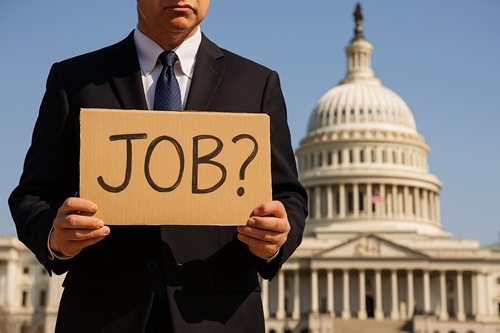


White House National Economic Council Director Kevin Hassett warned Thursday that the recent U.S. government shutdown could result in significant private-sector job losses, estimating that as many as 60,000 positions may disappear.
Speaking to Fox News, Hassett said the Council of Economic Advisers (CEA) projected the losses due to severe disruptions caused by the 43-day funding lapse — the longest shutdown in American history. He noted that business travel cancellations and halted quarterly activities would have lingering effects.
“Many of the things that didn’t happen are activities companies perform once per quarter — and that quarter is now gone,” Hassett said. He added that some of the economic fallout may amount to “permanent destruction,” though he emphasized that the broader U.S. economy remains fundamentally strong.
President Donald Trump signed a deal Wednesday to fund the government through the end of January, formally ending the historic standoff. “The extremists on the other side insisted on creating the longest government shutdown in American history, purely for political reasons,” Trump said at the White House. “This is no way to run a country. I hope we can all agree that the government should never shut down again.”
The signing came just hours after the House of Representatives approved the bipartisan agreement in a 222–209 vote. The Senate had passed the measure on Monday, restoring funding at previous levels through January 30 after 43 days of disruption.
The legislation also includes a three-year appropriations package for essential agencies and programs and reinstates federal employees dismissed during the shutdown.
The standoff began on October 1 after negotiations over federal spending priorities broke down. Since then, thousands of federal workers were furloughed or required to work without pay, and many government services were reduced or halted.
Democrats had attempted to use the shutdown to push Republicans to extend Affordable Care Act (ACA) health-care subsidies and reverse cuts to Medicaid for low-income Americans — reductions enacted earlier in the year by Trump and his congressional allies. Neither goal was achieved, though Republicans agreed to future Senate votes on ACA subsidies expiring at year’s end.